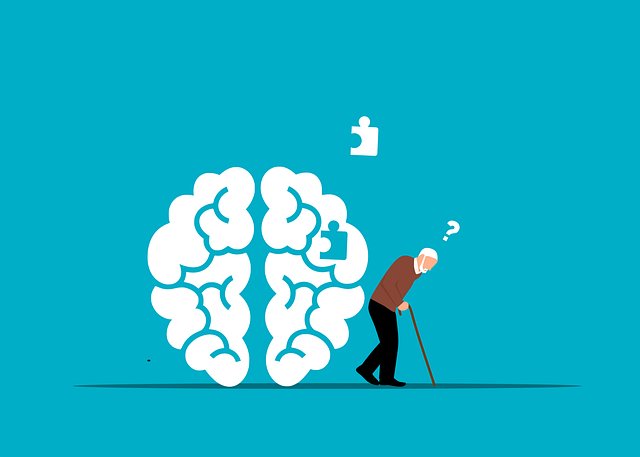Longmont Couples Counseling Therapy (LCT) offers comprehensive coping skills training, empowering individuals to manage stress, anxiety, and depression through mindfulness practices like meditation and breathing exercises. LCT counselors tailor support to unique couple dynamics, providing communication tools and relationship-focused strategies. Integrated programs build resilience, emotional intelligence, and inner fortitude, while public awareness campaigns encourage healthy coping. Stress Management Workshops and cultural competency training further enhance LCT's effectiveness, promoting long-term emotional well-being and societal self-care awareness.
In today’s fast-paced world, developing robust coping skills is essential for maintaining mental well-being. This article explores various facets of coping skills development, from understanding its foundational role in mental health to practical strategies like mindfulness and relaxation techniques. We delve into how Longmont Couples Counseling Therapy identifies and integrates individual and relationship coping strategies, building resilience for everyday struggles. Additionally, we highlight the long-term benefits of continuous practice, emphasizing enhanced quality of life.
- Understanding Coping Skills: The Foundation of Mental Well-being
- Identifying Individual and Relationship Coping Strategies in Longmont Couples Counseling
- Building Resilience: Effective Coping Skills for Everyday Struggles
- Integrating Mindfulness and Relaxation Techniques into Coping Skill Development
- Long-term Benefits: Enhancing Quality of Life through Continuous Coping Skills Practice
Understanding Coping Skills: The Foundation of Mental Well-being

Coping skills are essential tools that enable individuals to navigate life’s challenges and maintain mental well-being. Understanding coping mechanisms is a cornerstone of Longmont Couples Counseling Therapy, where professionals help clients develop effective strategies for emotional regulation. These skills are particularly crucial in managing stress, anxiety, and depression, fostering resilience, and promoting overall mental health.
In the context of self-care routine development for better mental health, various techniques can be employed. This may include mindfulness practices, such as meditation or deep breathing exercises, which have been shown to reduce symptoms of distress and enhance coping abilities. Additionally, community outreach program implementation plays a vital role in providing support networks and resources, fostering a sense of belonging and encouraging individuals to prioritize their emotional well-being.
Identifying Individual and Relationship Coping Strategies in Longmont Couples Counseling

In Longmont Couples Counseling Therapy sessions, the process of identifying and developing coping skills often involves a nuanced exploration of both individual and relationship dynamics. Therapists skilled in this area understand that every couple brings their unique set of experiences, communication styles, and conflict resolution mechanisms to the table. By recognizing these distinct strategies, counselors can tailor their approaches to effectively support each partnership.
Individual coping strategies, such as those rooted in Mind Over Matter Principles, play a significant role in how partners navigate stress and challenges. Some individuals may lean into proactive stress reduction methods, like meditation or exercise, while others might cope through creative outlets or seeking social support. Meanwhile, relationship-focused coping involves enhancing communication, improving conflict resolution skills, and fostering an environment of mutual understanding and empathy. Public Awareness Campaigns Development can also be integral to promoting healthy coping strategies within couples, as increased awareness encourages open dialogue and a willingness to learn new ways of managing conflicts.
Building Resilience: Effective Coping Skills for Everyday Struggles

Building resilience is a key aspect of effective coping skills development, allowing individuals to navigate everyday struggles with adaptability and strength. Longmont Couples Counseling Therapy offers valuable resources for cultivating this inner fortitude. Through structured programs and therapeutic practices, clients can learn to view challenges as opportunities for growth rather than insurmountable obstacles. This shift in perspective empowers people to develop a range of coping strategies tailored to their unique needs.
Empathy Building Strategies, often integrated into these therapies, play a crucial role in enhancing emotional intelligence and strengthening relationships. By fostering understanding and connection with others, individuals can better manage stress and build a supportive network. Additionally, Stress Management Workshops Organization provides accessible platforms for learning practical tools to mitigate stress and anxiety, empowering participants to take control of their mental well-being. Healthcare Provider Cultural Competency Training is another vital aspect, ensuring professionals are equipped to offer sensitive and effective support, especially when working with diverse communities.
Integrating Mindfulness and Relaxation Techniques into Coping Skill Development

Incorporating mindfulness and relaxation techniques is a powerful strategy within Longmont Couples Counseling Therapy for enhancing coping skill development. These practices enable individuals to cultivate present-moment awareness, fostering a deeper connection with their thoughts and emotions without judgment. By learning to focus on breath and bodily sensations, one can effectively reduce stress and anxiety, making it easier to navigate challenging situations. Mindfulness meditation, for instance, encourages non-reactive responses, allowing people to cope with stressors in healthier ways.
Longmont Couples Counseling Therapy also emphasizes the importance of relaxation techniques such as progressive muscle relaxation and deep breathing exercises. These methods not only promote calmness but also serve as valuable tools for depression prevention and confidence boosting. Stress Management Workshops organized by therapy centers play a significant role in teaching individuals how to integrate these practices into their daily lives, ultimately enhancing overall well-being and resilience.
Long-term Benefits: Enhancing Quality of Life through Continuous Coping Skills Practice

The benefits of developing coping skills extend far beyond immediate stress relief or challenge management. When individuals invest time and effort into honing their coping strategies through Longmont Couples Counseling Therapy, they embark on a journey that significantly enhances their overall quality of life. This continuous practice equips them with resilience against future adversities, fostering emotional well-being and mental fortitude. Over time, these skills allow for more effective navigation through life’s inevitable challenges, leading to improved relationships, career satisfaction, and a deeper sense of fulfillment.
The integration of coping skill development into one’s routine also has broader societal implications. Increased public awareness campaigns focused on promoting self-care practices can empower individuals to take charge of their mental health proactively. This shift in perspective is crucial, encouraging people to view seeking support as a sign of strength rather than weakness. Culturally sensitive mental healthcare practices, which acknowledge and appreciate diverse backgrounds, play a pivotal role in this process, ensuring that coping skills development is accessible and beneficial for all.
Coping skills development is a transformative journey that begins with understanding our emotional responses and extends into cultivating resilience. As discussed, both individual and relationship-focused strategies, such as those employed in Longmont Couples Counseling Therapy, play pivotal roles in enhancing mental well-being. By integrating mindfulness, relaxation techniques, and continuous practice, individuals can navigate life’s challenges more effectively, ultimately improving their quality of life. Investing time in building these skills is a powerful step towards fostering resilience and achieving long-term emotional balance.














